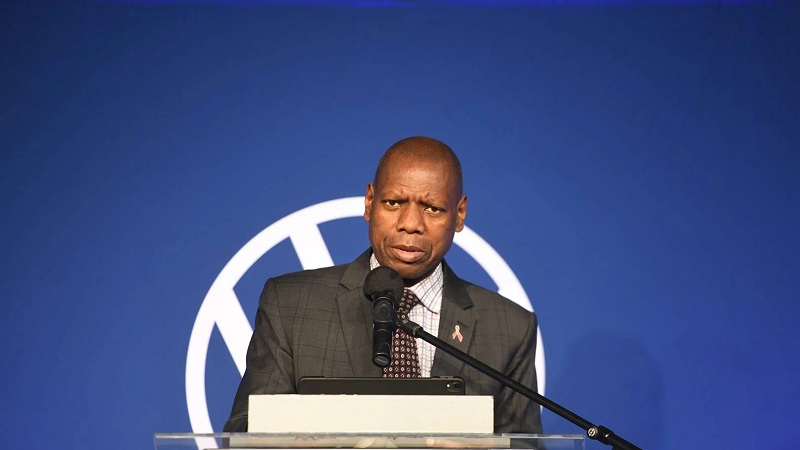Health Minister Zweli Mkhize will not be releasing any of the more than 70 medical advisories drafted by the Ministerial Advisory Committee (MAC) on Covid-19, despite calls from senior scientific advisors that it can only enhance public understanding of the pandemic.
A significant number of MAC members have in recent times argued the advisories – which the government said it used to formulate policy and regulations – should be released in the interests of transparency and responsive government.
This follows the issue of the latest set of regulations, which included renewed bans on the sale of alcohol and measures that allows taxis to operate at 100% capacity. These regulations have, in some quarters, been severely criticised as contradictory and nonsensical.
At least five senior scientists serving on the MAC this week told News24 they believed the government should release the information and data:
Professor Francois Venter, the head of the Ezintsha Health Unit at the University of the Witwatersrand, said there were gross inconsistencies and even hypocrisy in the regulations.
Dr Shabir Madhi, a professor of vaccinology at the University of the Witwatersrand, said there was no reason not to release the advisories and it would hold the government accountable.
Dr Jeremy Nel, the head of infectious diseases at Helen Joseph Hospital, said releasing the advisories would subject the government’s decision-making process to greater scrutiny “which is healthy”.
News24 understands the issue around making the advisories public was supposed to have been discussed at the last meeting of the MAC on 9 July, but was not raised due to time constraints.
The matter will now be discussed at the next meeting, but Mkhize seems to have pre-empted any attempt to debate it when he said during a briefing this week, the advisories would remain under lock and key.
He told journalists on Monday the advisories would not be made public because it might be misconstrued as official policy.
“It’s a very interesting coincidence that that question comes up because it is a debate that has been held by the members of the MAC,” Mkhize said during a press briefing on Monday.
“There has been a very interesting discussion among some of them. Some of the members have been wanting to, if we ask for an advice, they have been debating as to whether they should be publishing those advices.”
It is not clear if he was referring to past discussions.
MAC members, who spoke with News24, said this was the first time the issue was officially placed on the agenda, but it had been touted during past calls and emails in passing.
Mkhize’s spokesperson, Lwazi Manzi, said the minister did not attend the 9 July MAC meeting, but did not respond to a follow-up query asking whether the Mkhize had seen the agenda.
It is understood the director-general for health, Dr Sandile Buthelezi, did attend the meeting.
Mkhize said the advisories could not be made public as once received, advice was implemented together with inputs from “other players” based on issues that came up during “the process of consultation” which sometimes forced changes.
While little is known about the content of most of the advisories, News24 has been told they are for the large part, not at all controversial and based on science already in the public domain.
Requests since May by News24 to the Department of Health for access to the advisories have been ignored, and an application for access in terms of the Promotion of Access to Information Act (PAIA) has since been lodged.
A second PAIA application for ongoing access to detailed Covid-19 data has also been lodged with the department.
The head of infectious diseases and HIV medicine at Groote Schuur Hospital, Professor Marc Mendelson, said making the advisories public would “help facilitate key health messaging by being able to communicate advice directly to the public”.
This, he added, was a sign of a mature democracy and this also happened in other countries, like Britain.
He said while Mkhize sought advice from different sectors, most MAC members would accept not all their advisories were implemented.
“However, by making them public, South Africans can at last see what the MAC advised and balance the arguments for themselves,” Mendelson added.
Another scientist – who advises the government, and who wished to remain anonymous for fear of reprisal – expressed frustration with the authorities’ communication and decisions, saying policy often contradicted debates in and advice by the MAC.
“Many decisions are not discussed within the MAC, or go against the MAC advice, and then ministers say this comes from scientists and advisors. Who are these people? And what is the justification for the advice?” the expert told News24 on Friday.
Speaking to News24, two government insiders explained the disagreement on the issue stemmed from the fact that the advisories made up only a portion of decision-making, with one insider saying it could cause public panic as some advisories give worst case scenarios.
One insider said the President remained clear that releasing the health advisories publicly would cause widespread panic.
Source: News24






 WhatsApp us
WhatsApp us 

